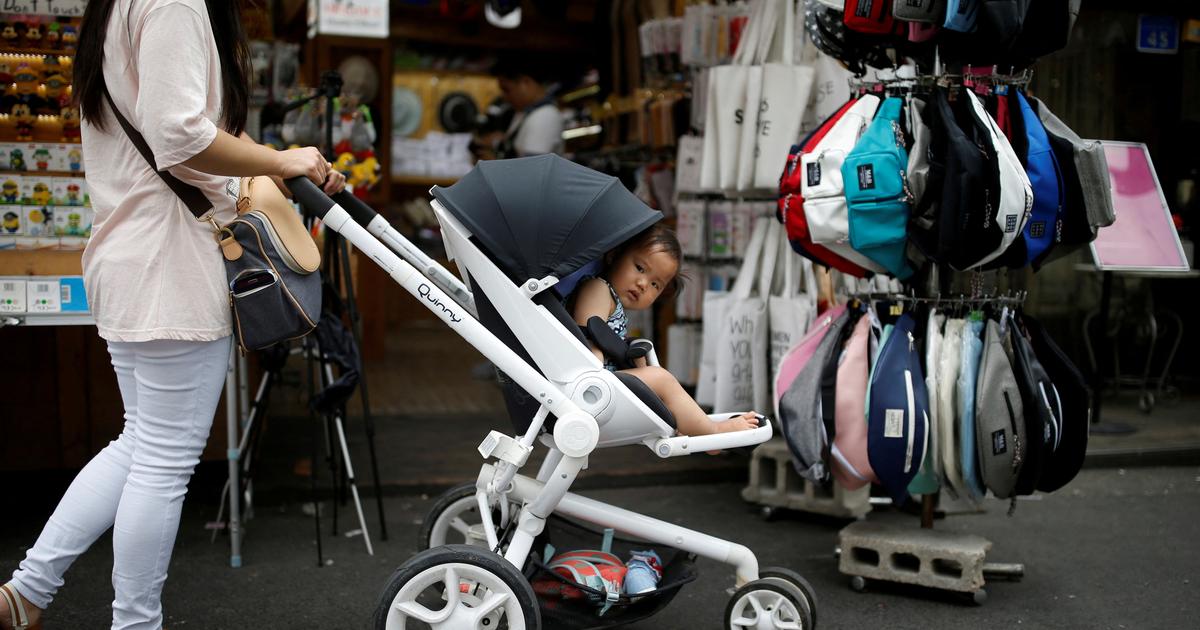The number of newborns in South Korea reached its lowest level in 2023 since the first statistics on the subject in 1970, Seoul announced on Wednesday February 28, despite billions of euros spent by the government to encourage births.
“The number of newborns in 2023 was 230,000
,” or 7.7 percent less than in 2022, Lim Young-il of the census bureau at the state-run statistics agency South Africa told reporters. Koreans.
In 2023, the crude birth rate, that is to say the number of newborns per 1,000 inhabitants, was 4.5 compared to 4.9 in 2022, according to these preliminary data.
“The number of newborns (...) and the crude birth rate are all at their lowest point since 1970,”
the year the collection of this data began, described Lim Young-il.
Women's double working day, a key factor
To maintain the population at its current level (51 million individuals), women would need to give birth to 2.1 children on average during their lifetime.
But in 2023, the fertility rate continued to fall, reaching 0.72.
At this rate, South Korea's population will almost halve to 26.8 million in 2100, according to the Institute for Health Metrics and Evaluation at the University of Washington in Seattle, United States. -United).
Seoul has spent hundreds of billions of euros trying to encourage births, through benefit payments, childcare and help with infertility treatments.
According to experts, the low number of births is due in particular to real estate prices and the high costs of raising children, in a competitive society that also makes it difficult to obtain well-paid jobs.
The double working day of women, who, upon returning from work, often assume responsibility for household chores and child-rearing, is also a key factor, they explain.

